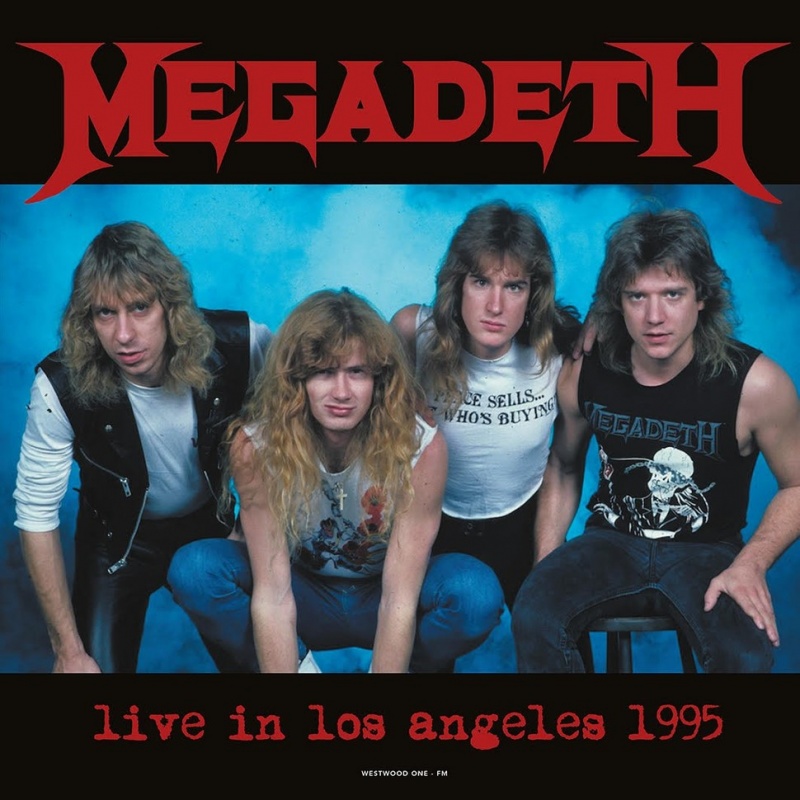

Radiohead's musical style on these songs was similar to that of Kid A Īmnesiac, released in June 2001, comprised additional tracks from the Kid A recording sessions. They also promoted Kid A with three sold-out North American theatre concerts.
Megadeth supercollider vinyl free#
Of Europe later in the year in a custom-built tent free of advertising The band had read Naomi Klein's anti-globalisation book No Logoĭuring the recording, and they decided to continue a summer 2000 tour
Megadeth supercollider vinyl series#
Although Radiohead did not release any singles from Kid A, promos of " Optimistic" and " Idioteque" received radio play, and a series of " blips", or short videos set to portions of tracks, were played on music channels and released freely on the Internet. This success was attributed variously to marketing, to the album's leak on the file-sharing network Napster a few months before its release, and to advance anticipation based, in part, on the success of OK Computer. It debuted at number one in many countries, including the US, where its debut atop the Billboard chart marked a first for the band, and the first US number one album by any UK musician since the Spice Girls in 1996. Rather than being a stylistic sequel to OK Computer, Kid A featured a minimalist and textured style with more diverse instrumentation including the ondes Martenot, programmed electronic beats, strings, and jazz horns. In October 2000 Radiohead released their fourth album, Kid A, the first of two albums from these recording sessions. After nearly 18 months, Radiohead's recording sessions were completed in April 2000. Eventually, all the members agreed on a new musical direction, redefining their instrumental roles in the band. Radiohead secluded themselves with producer Nigel Godrich in studios in Paris, Copenhagen, and Gloucester, and in their newly completed studio in Oxford. Writer's block, influencing him toward a more abstract, fragmented form Band members all hadĭifferent visions for Radiohead's future, and Yorke was experiencing Record label, tension during this period was high. In early 1999, Radiohead began work on a follow-up to OK Computer.Īlthough there was no longer any pressure or even a deadline from their Yorke later admitted that during that period the band came close to splitting up, and that he had developed severe depression. Radiohead were largely inactive following their 1997–1998 tour after its end, their only public performance in 1998 was at an Amnesty International concert in Paris. Kid A, Amnesiac and change in sound (1999–2001) During this time the band also released a music video compilation, 7 Television Commercials, as well as two EPs, Airbag/How Am I Driving? and No Surprises/Running from Demons, that compiled their B-sides from OK Computer singles. The film screened within festivals such as the 1999 Maryland Film Festival, and had a limited theatrical release in select cities. "How to Disappear Completely", "Life in a Glasshouse", "I Will" and Were never released or were not released until years later, such as The film is also notable for documenting earlier versions of songs that

Press, showing their burnout as they progressed from their first tourĭates in mid-1997 to mid-1998, nearly a year later. The film portrays the band's disaffection with the music industry and Grant Gee, the director of the "No Surprises" video, accompanied and filmed the band, releasing the footage in the 1999 documentary Meeting People Is Easy. The release of OK Computer was followed by the "Against Demons" world tour. Got all the things, all the textures and the sounds and the atmospheres What really blew my head off was the fact that people None of us fucking knew any more whether it

Met with great critical acclaim, and Yorke admitted that he was "amazed "end-of-the-millennium blues" in contrast to the more personal songs of The Bends. Yorke's lyrics,Įmbodying different characters, had expressed what one magazine called Observing the "speed" of the world in the 1990s. Some compared OK Computer thematically to Floyd's best-seller The Dark Side of the Moon (1973), Īlthough Thom Yorke said the album's lyrics had been inspired by Some ambient, avant garde and electronic influences, prompting Rolling Stone to call the album a 'stunning art-rock tour de force.' Radiohead denied being part of the progressive rock genre, but critics in the mid-'90s began to compare their work to Pink Floyd, a band whose early 1970s work influenced Greenwood's guitar parts at the time. Largely composed of melodic rock songs, the new recordĪlso found the band experimenting with song structures and incorporating Radiohead released their third album, OK Computer,


 0 kommentar(er)
0 kommentar(er)
